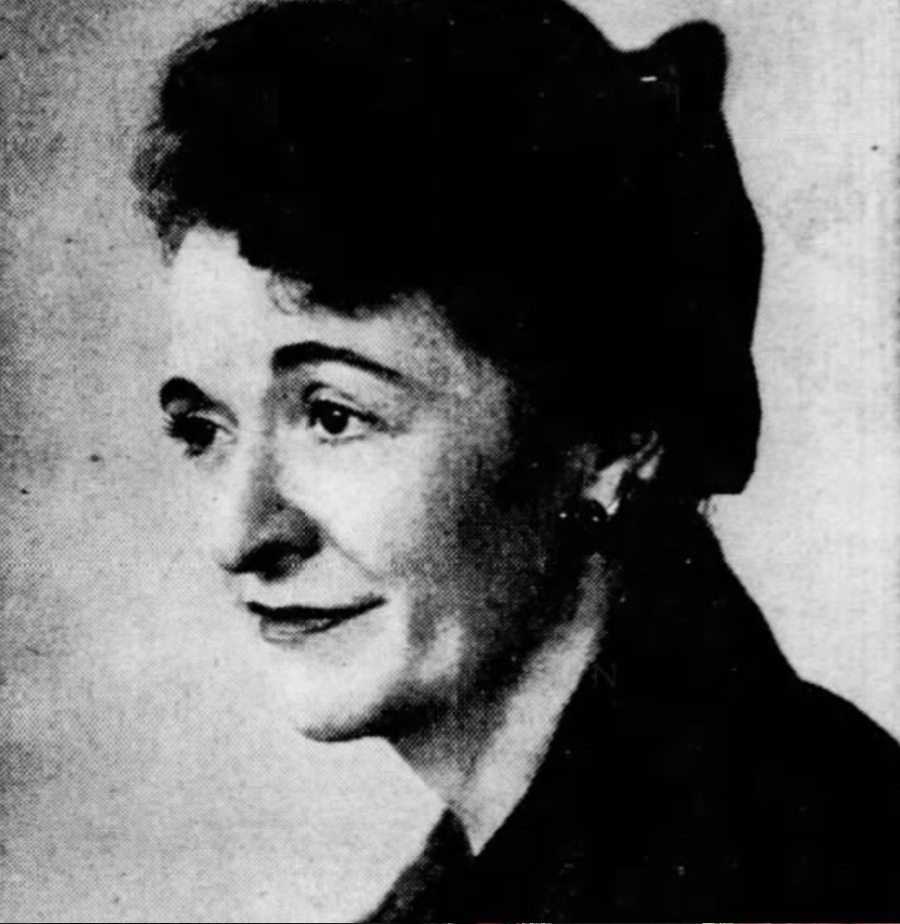
When Helen Kelly arrived in the South, she was blunt. She called out furniture designed and made in factories like those in western North Carolina. Companies all over the region had weathered the Great Depression and World War II by offering “promotional lines,” another way of saying cheap furniture. But Miss Kelly intended to change all that.

Helen Kelly makes a stand for empowerment with furniture choices
A mid-westerner by birth, Helen Kelly got into the furniture business almost by accident. She thought for a while she might make a living as a furniture buyer but soon found her forte as a writer. Her views were brutally honest. She printed condemnations of the dreary design of manufacturers, which was at least partially due to the fact that output was wholly the creation of men. The emerging irony was that in the post-war world, women were increasingly making the stylistic choices about what furniture went into their homes. Helen’s articles spoke to them.
By 1949, the industry nationwide began to recognize the writings of Helen Kelly. She was labeled a “furniture expert” for her candid critiques. She was booked as a headliner for numerous “home decor fashion show” presentations. Her catch phrase encouraged women to “Live As Well As You Look.”
Henredon Furniture in Morganton hired her as their “marketing co-ordinator,” recognizing that she brought a new voice to merchandising. In joining Henredon, Kelly felt she had found a “bright spot” in the manufacture of furniture that “stood out like an oasis in the desert” of unimaginative furniture begin produced.
Her touch, a pioneering woman’s touch on what Henredon offered reflected “furniture such as the Old South would have been proud to put in its great plantation houses,” a reference that harkened back to the what white consumers of the time could understand and aspire to. She helped women overcome what she knew would be the objections of their husbands that better design was too expensive, saying the furniture that she endorsed was “within the budgets of the pretty brides and brides-to-be.”
Helen Kelly was the first woman who spoke directly to those of her gender about not settling for unimaginative lines for their house. “We have the top designers in the world which combined with our mechanical efficiency, and coupled with American know-how, should make us world leaders in the furniture field.” Many wives trusted her sense of both style and practicality. She advised studying the magazines for which she once wrote to see the best of what was available before accompanying their husbands to buy. But more importantly she encouraged women to look for pieces that served “the needs of each member of the family.”
“The housewife of today” was Helen Kelly’s audience. Her advice awoke a whole generation of women to their buying power. They understood the household in a way that the traditional husband did not. Instead of accepting whatever he decided was within the family budget, women began to assert their views.
Western North Carolina retail furniture pioneer and leader Leroy Lail has noted that “furniture follows fashion.” The inclusion of women in buying decisions of big ticket items took a substantial step forward with Helen Kelly’s empowerment of females as powerful consumers. In her own way, she was a pioneer too. It could be argued that though it was a small step, the march toward equal rights began in the home where women began to exercise more control over life choices. Helen Kelly played a role in making that happen.









